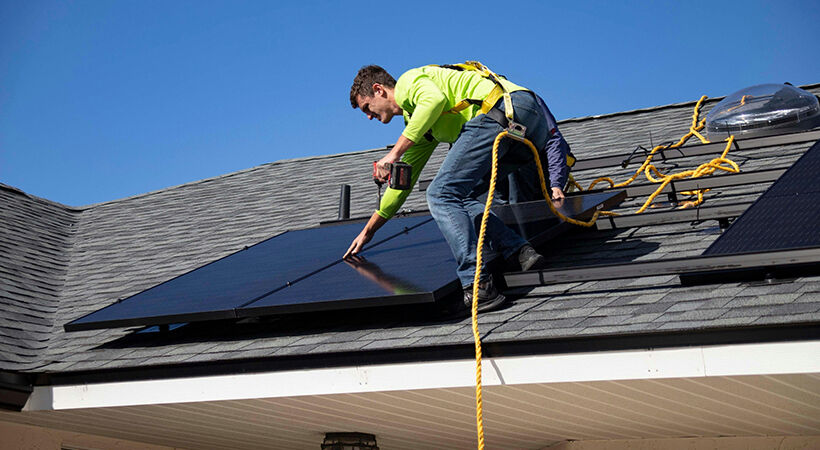Iván Castro, operations director at Levelise looks at solar trading.
The solar sector in the UK has witnessed remarkable progress over the past decade - costs have plummeted, adoption has surged, and technology has advanced. But as we look ahead, it's clear that simply generating clean energy isn't enough. The next frontier is flexibility.
Recent policy announcements, particularly the Future Homes Standard, reinforce this direction and place a strong emphasis on low-carbon heating and onsite renewable energy - including solar PV. But the key evolution isn't just in how homes produce energy; it's in how they use and trade it.
With solar adoption continuing to grow, the challenge lies in managing when and where energy is used. A sunny afternoon may generate surplus electricity, but excess energy often goes to waste or is undervalued. Flexibility unlocks the true value of solar by aligning supply with demand more intelligently.
The UK’s smart meter rollout, combined with advances in battery storage and grid digitalisation, is enabling households and businesses to become active energy participants - shifting consumption, storing excess generation, or trading it in real-time markets. The result? A more resilient, efficient, and lower-cost energy system.
This is where independent aggregators such as Levelise come in. Levelise allows domestic customers to trade flexibility services in energy markets. It remains the only operator trading solely with home assets at scale. Their proven trading success has translated directly into financial results for households, having paid over £2 million to its domestic customers with batteries to date, with 94% exceeding their projected flexibility payments since 2019. On average, each customer has earned over £154 per year simply by allowing Levelise to optimise their battery. This continues to prove that residential flexibility isn’t just technically possible - it’s commercially powerful.
Achieving the government’s net zero goals will also require a power system that is not only clean but also smart and capable of adapting to fluctuations in supply and demand. One example of this adaptability is directly curtailing solar generation - intentionally reducing output to balance the grid or prevent oversupply without requiring any co-located battery. Independent aggregators - such as Levelise - enable this by coordinating distributed energy resources and making real-time decisions to maximise value for asset owners while supporting grid stability.
The benefits stretch far and wide, including:
Supporting the local grid
Local grid operators (DSOs) need help managing supply and demand - especially in areas with congestion or limited capacity. By reducing solar output on request, independent aggregators can unlock payments through DSO flexibility tenders, helping homes support their communities while being rewarded for it.
Beating the tariff trap
Some smart export tariffs, like Octopus Agile Outgoing, drop to zero when energy prices go negative. That means no payment for exported solar, no matter how green it is. But with flexibility trading, that same exported energy can be pulled into the market and earn money - even when the standard tariff pays nothing.
This shift from tariff-based earnings to market-based trading is the future. It’s more responsive, more profitable, and more sustainable.
Smarter solar and storage
For homes with solar and battery storage, curtailment plays an even bigger role. It can help avoid overcharging, free up space for high-value grid services like Dynamic Containment, and ensure systems are ready to respond when prices peak.
A major industry update - Modification P444 - is currently in the pipeline. Once approved, it will make sure households are fairly compensated when their solar is curtailed as part of a flexibility service. This would remove the final barrier to wide-scale adoption and make flexibility trading even more attractive.
The bottom line is flexibility trading helps solar homes do more with less - less export, but more value. It supports the grid, boosts household earnings, and helps the UK build a smarter, greener energy system.


